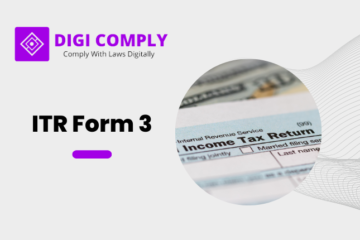The Income Tax Act of 1961 encompasses a comprehensive set of regulations pertaining to income and taxation, including provisions related to the treatment of losses under different income heads. Understanding the correct method to offset these losses can significantly influence your tax liability.
- Under the Income Tax Act of 1961, there are five distinct heads of Gross Total Income, under which income relevant to each head must be declared.
- However, a crucial question arises when there are losses under any of these heads: Can they be set off against the same head in which the loss occurred, or can they be adjusted against income from any other head?
- Furthermore, what should be done in cases where there is no income under any head during the year but a loss exists under one head?
- The answers to these questions lie within sections 70 to 80 of the Income Tax Act. In general, any loss incurred under one head of income can be set off against income from any other head during the same assessment year, with a few exceptions.
According to section 71(1) of the Act, if the net result of the computation under any head of income, except “Capital Gains,” results in a loss for a particular assessment year, and the taxpayer has no income under the head “Capital Gains,” then they are entitled to set off the amount of such loss against any income assessable for that assessment year under any other head.
- However, it is essential to note that when a taxpayer incurs a loss under the head “Capital Gain,” such a loss cannot be offset against any other income during the same assessment year.
- Instead, it is carried forward to future assessment years for potential set-off.
- Another provision, section 71(2A) of the Act, states that if a taxpayer experiences a net loss under the head “Profits and gains of business or profession” for a given assessment year and also has income assessable under the head “Salaries,” they are not allowed to set off the loss from the business or profession against the salary income.
- It is crucial to adhere to these guidelines while computing your taxable income and offsetting losses to ensure compliance with the Income Tax Act.
- By following these rules appropriately, taxpayers can minimize their tax liability and make informed financial decisions.
- Always consult a tax professional or refer to the Act for specific cases to ensure accurate tax calculations and proper utilization of loss set-off provisions.
- In this section, it’s important to note that under no circumstances can losses under the category “Profits and gains of business or profession” be offset against income under the category “Salaries.”
- As per Section 71(3) of the Act, if, in any assessment year, the net result of the computation under the head “Capital Gains” results in a loss, and the assessee has income assessable under any other head of income, the assessee will not be entitled to set off such loss against income under another head.
Similarly, as per Section 71(3A) of the Act, if, in any assessment year, the net result of the computation under the head “Income from House Property” results in a loss, and the assessee has income under any other head of income, the assessee will not be entitled to set off the loss to the extent the amount exceeds Rs. 2,00,000 against income under the other head. This section restricts the set off of loss under the head “Income from house property” to Rs. 2,00,000 only. Any loss beyond this amount must be carried forward.
- Regarding losses in speculation business (Section 73), any loss computed in respect of a speculation business carried on by the assessee cannot be set off except against profits and gains, if any, of another speculation business.
- This means that under any circumstances, speculation losses cannot be set off against any head of gross total income.
- However, if an assessee is engaged in two types of speculation businesses and incurs a loss in one while making a profit in the other, the loss can be set off.
- Income from speculation business is reported under the head “Profits and gains of business or profession,” but losses from other business activities cannot be set off against the loss of the speculation business.
- Speculation losses can be carried forward for up to 4 years only.
Now, let’s apply this knowledge to Mr. A’s income during the period from 1st April 2022 to 31st March 2023 to calculate his taxable income for the year.
- Salary Income: Rs. 600,000
- Income from Property (Residential): Nil
- Profit and gain from Business: Rs. 1,000,000
Speculation Loss: Rs. 200,000
- Other Income:
– Interest: Rs. 200,000
– Dividend: Rs. 100,000
Calculation of Taxable Income:
– Salary Income: Rs. 600,000
– Property Income: Rs. -200,000
– Business Income: Rs. 1,000,000
– Other Income: Rs. 300,000
Taxable Income: Rs. 1,700,000
Note: The speculation loss of Rs. 200,000 can be carried forward for up to 8 years and will be set off only against speculative profit.
In conclusion, gaining a clear comprehension of the Income Tax Act’s regulations on offsetting losses across different income categories can facilitate precise tax calculations and potentially lead to tax savings. Nonetheless, due to the intricacies involved, it is essential to seek advice from tax professionals or legal advisors to ensure accurate application. Remember, adhering to tax laws accurately not only keeps you compliant but also enhances your financial planning.
If You have any queries then connect with us at support@legalsuvidha.com or info@digicomply.in & contact us & stay updated with our latest blogs & articles





